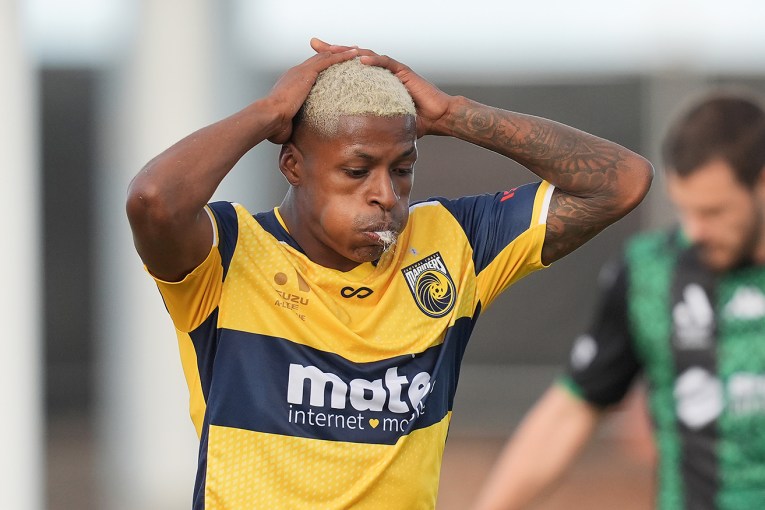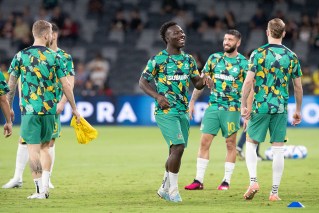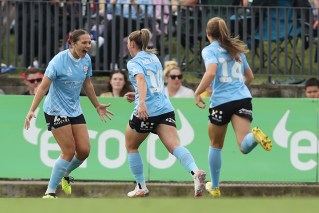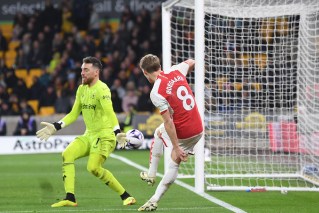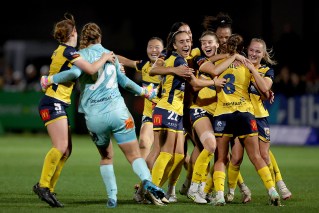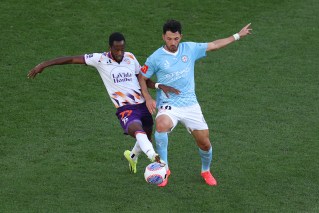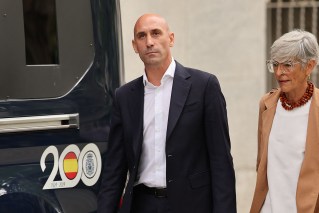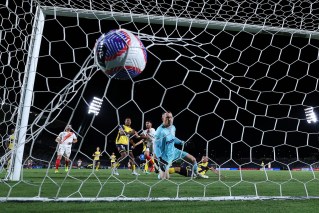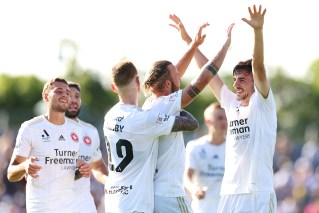Meet the world-class Aussies who wouldn’t be told they weren’t worth paying for
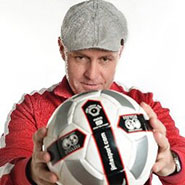
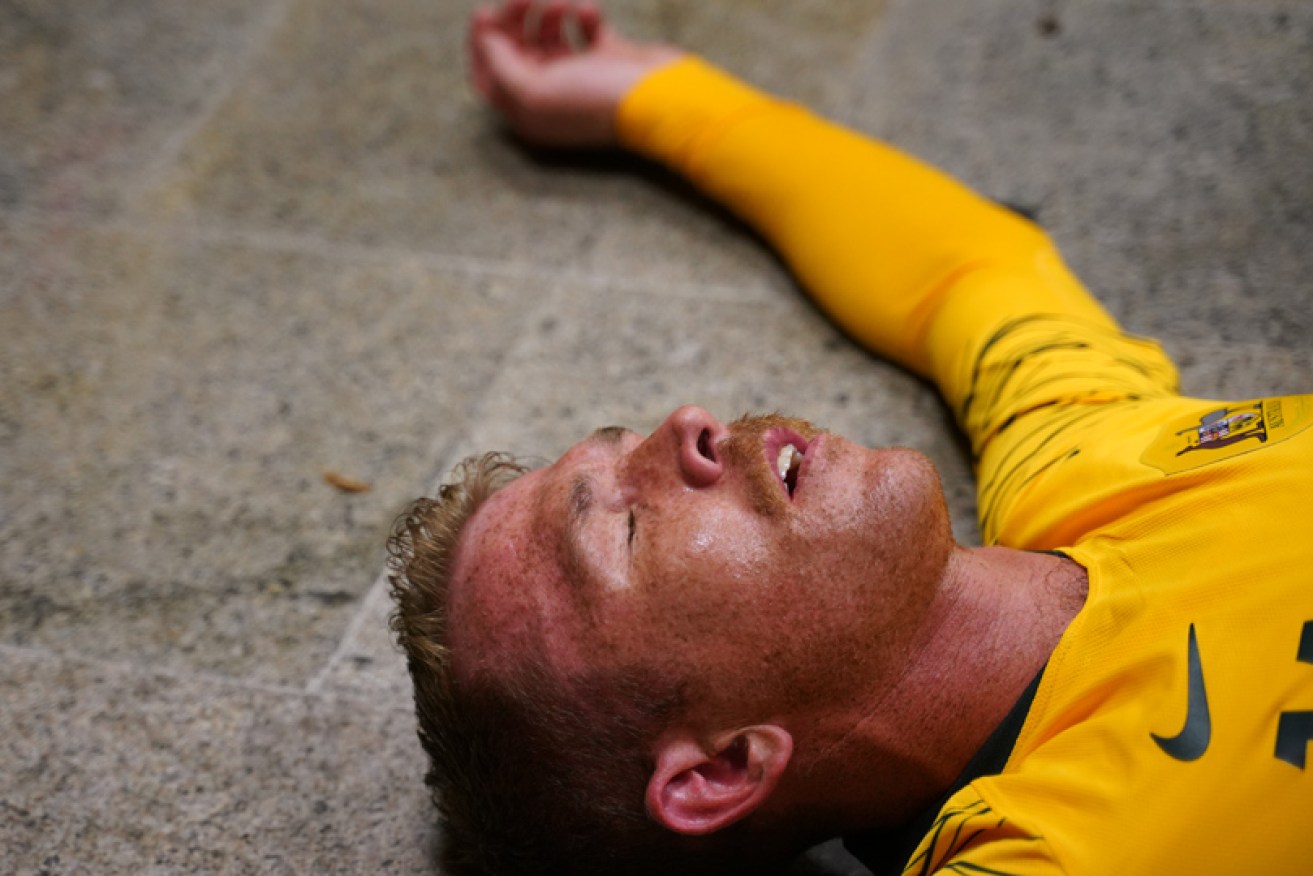
Qualifying for the World Cup is hard work. Pararoo Bradley Scott. Photo: FFA
This is the team that wouldn’t take no for an answer.
Australia’s Pararoos have qualified for the 2019 International Federation of Cerebral Palsy Football (IFCPF) World Cup in Spain and they did it without any financial support from Sport Australia.
The seven-a-side team had its funding from Australia’s peak sports body withdrawn in 2015, in accordance with the Winning Edge strategy that SA (then known as The Australian Sports Commission) uses to direct funding to teams it views have medal-winning potential at Olympic and Paralympic competition.
SA cut the $175,000 budget from the team, which put the program in jeopardy. The Pararoos were devastated but undeterred, and following a campaign of relentless advocacy and lobbying, they have survived and thrived.
Last week the team won a silver medal at the IFCPF Asia-Oceania Championship, losing the final to host nation Iran 7-0. The achievement booked them a place at next year’s World Cup.
Coach Kai Lammert told The New Daily it was a just reward for the hard work his team has done.
“If you see a normal pro who trains once a day, these guys train then do eight hours at work. All their annual leave is taken up by playing tournaments or being in camp,” Lammert said.
Benny Roche is a veteran Pararoo who was part of the team that qualified for next year’s World Cup.
Roche thought his dream of playing for Australia might have evaporated when the funding dried up. He also felt like football had turned its back on him.
It was at that point Roche and his teammates took matters in their own hands. They became ferocious lobbyists for the sport.
“It was extremely disappointing. I’m really proud of what we did. We took it as an opportunity to prove to people why we think the Pararoos should exist, and the importance of having inclusive football in Australia,”Roche said.
“We campaigned. We advocated. Personally, I got some of the team members together to make a fundraising video.
“I got a lot of personal emails addresses for people in big business and annoyed the hell out of as many people as I could!”
“I maybe made a few enemies along the way, but you ask for forgiveness afterward because it was worth it,” Roche said.
Role models
ForRoche and his teammates, their campaign wasn’t just about them.
“It was for the kids at home, for the kids that were struggling in school, for the kids that love football and want the opportunity to play – it was for the millions of people in Australia with a disability,” he said.
“I look at where we’ve come without government support and I get tingles thinking about what we could achieve with that support. We play against paid professionals. We’re now top 10 in the world. I’m excited to see what’s next.”
The Pararoos’ current funding comes from philanthropic organisation, the Australian Sports Foundation, in partnership with Football Federation Australia.
They created a tax-deductible fund to raise money to support the cost of maintaining the program. That funding mechanism helped the Pararoos participate in tournaments in Denmark and Argentina in 2016 and 2017.

The Pararoos are off to next year’s World Cup in Spain. Photo: FFA
Roche is grateful for the support, but believes his team deserves better from the government’s peak sports funding body.
“With no funding from SA, we rely on donations from the public, which essentially is a case of constantly pleading for support. It’s not sustainable,” he said.
Young Pararoos star Taj Lynch embodies the transformative power of sport for people living with a disability.
“This team has allowed a lot of acceptance of who I am. Your disability can often be something that you can conceal, which is what I was able to do before I was more accepting of myself,” Lynch told The New Daily.
“With this team, you see people with disabilities that are leaders within communities, have families, are teachers, are personal trainers, or work in sports science.
“It shows your disability is no barrier to success.”
Questions over future funding
Sport Australia is transitioning away from Winning Edge program to a longer term funding model for sports that still priorities success at major competition.
While the new strategy also re-orients its focus toward community involvement, SA maintains it simply can’t fund everyone.
Olympic and Paralympic performance will still be the core benchmark for funding decisions.
It is understood SA is in the process of diversifying its funding streams and that by the middle of 2019, new opportunities would be available to sports that are engaged in increasing participation and inclusivity in the wider community.
That money would be available to peak bodies, such as FFA, rather than directed at specific programs and teams like the Pararoos.
Lammert has enjoyed the team success, but it’s the personal growth his players experience that gives him the most satisfaction.
“Seeing them grow as people is the part I enjoy most. When they come into the team they’re not sure of themselves,” Lammert said.
“It’s not easy. Something like cerebral palsy is for life. It’s not something that just goes away. Accepting that is the first step towards fulfilling your potential within the team and the wider world as well.”
It’s a timely reminder to SA that winning isn’t the only thing that matters.
The IFCPF World Cup takes places in Seville, Spain from July 4 to July 20.
